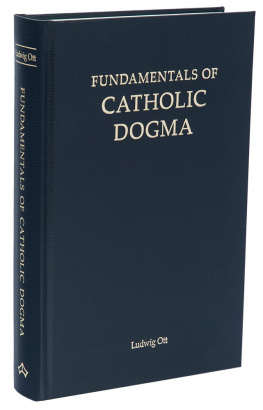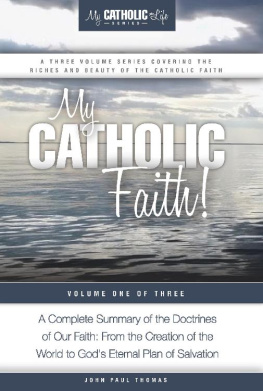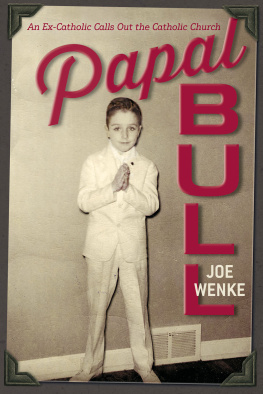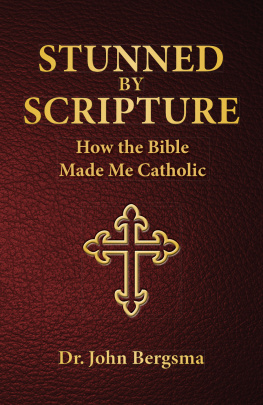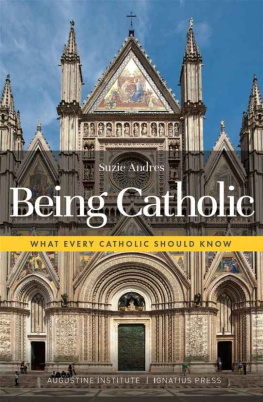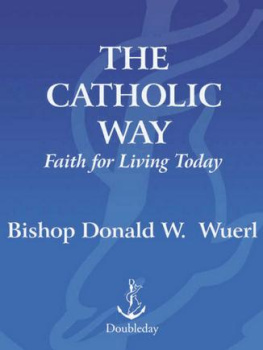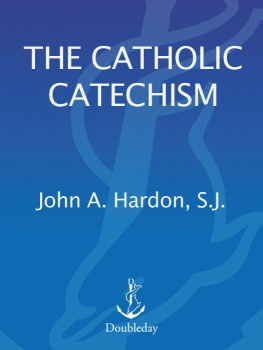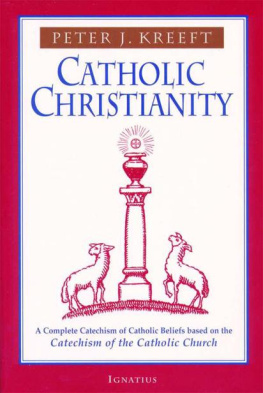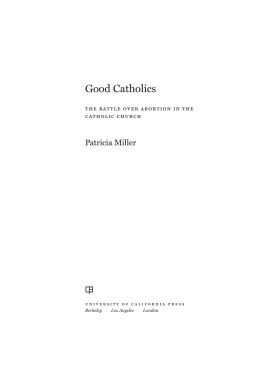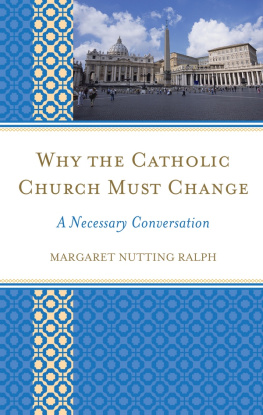Dr. Ludwig ott
Fundamentals of Catholic Dogma
edited in english
By
james canon bastible, d.d
Translated from the German by Patrick Lynch, Ph.D.
mcmlvii
b. herder book company,
15/17 south broadway,
st. louis 2,
missouri, u.s.a.
First published in English in May, 1955, by The Mercier Press, Limited, 19 Maylor Street, Cork. First published in German in 1952, under the title Grundriss der Katholischen Dogmatik, by Verlag Herder, Freibury.
second edition, march 1957
Nihil Obstat: |
JEREMIAH J. OSULLIVAN, D.D. Censor Deputatus. |
Imprimatur: |
CORNELIUS. Ep. Corgagiensis et Ap. Adm. Rossensis. |
7 October, 1954. |
Preface
This Basic Course of Dogmatic Theology appears in place of B. Bartmanns ( 1938) Basic Course which has been out of print for years. Derived from practical experience of theological instruction, it is primarily intended to meet the needs of students. My aim was to present the essentials of Church teaching and the foundation of such teaching in clear and concise form. On didactic grounds the matter was very extensively correlated. As the framework of a basic course could not be exceeded, only the most important pronouncements of Official Church Teaching, only individual significant scriptural texts, and only one or two patristic texts could be quoted verbatim. The history of the development of dogma has been kept within the minimum limits indispensable for the understanding of Church doctrine. The scriptural and patristic texts were, on principle, quoted in their translation. Anyone desirous of seeing the original texts can easily find them in the Bible; most of the patristic texts quoted or indicated may be found in the Enchiridion Patristicum of M. J. Rouet de Journel (Freiburg i Br. 1947). On account of the brevity aimed at, the speculative establishment of doctrine had to give place to the positive. The many indications to the works of St. Thomas are intended to be a pointer to deeper study. The reader is directed to the appropriate Articles in the Dictionnaire de T hologie catholique and to the Theologisches Wrterbuch zum Neuen Testament of G. Kittel.
The present Basic Course is constructed on the framework of the lectures of my teacher Michael Rackl ( 1948 as Bishop of Eichsttt) and of Martin Grabmann ( 1949), and I venture to hope that it breathes their spirit. It was Grabmann who urged me to publish this work. I acknowledge with thanks that I found many hints and ideas in various religious textbooks particularly in those of Bartmann, Diekamp, Pohle and Van Noort. I am indebted to the Most Reverend Dr. Alfred Kempf in Oberzell bei Wrzburg for assistance in reading proofs and for the preparation of the Index of Persons.
May this book contribute to the extension of the knowledge of the Churchs teaching, to the deepening of the understanding of this teaching, and to the awakening of the religious life!
Eichsttt Ludwig Ott.
15th August, 1952.
Foreword
To the First English Edition
This book by Dr. Ludwig Ott is a conspectus of all Dogmatic Theology and quite the most remarkable work of compression of its kind that I have encountered.
The book will appeal particularly to busy priests who are anxious to review quickly the teaching from Tradition, from the Bible, and from reason on any particular point of doctrine. It will be specially useful to students who desire to revise rapidly, in the vernacular, the tracts which they are presenting for examination. It makes available for educated laymen a scientific exposition of the whole field of Catholic teaching. Finally, Dr. Otts work will be invaluable for use as a text-book by those priests whose duty it is to present to students, in a systematic way, the teaching of the Catholic Church.
The Mercier Press has performed a service of major importance in making this work available in English. A special word of praise is due to the translator, Dr. Patrick Lynch, whose careful and accurate work made my task relatively simple.
Personally I am happy to be associated with the first appearance in English of this work. I believe it will prove to be of such importance and lasting value as to justify fully the labour which has gone into its production.
University College James Bastible
Cork
Foreword
To the Second English Edition
The exhaustion of the first edition, in such short time, is most gratifying. It may, perhaps, be interpreted not only as an indication of the need which the book fills but also as a tribute to the book itself. In this connection it is of considerable interest to note that Dr. Otts work has appealed not only to priests and religious but to a very wide circle of layfolk.
As the author mentions in his preface, the object is to provide a basic course. In the light of this the book is amazingly comprehensive. The references to disputed questions are, of course, very much in outline but students of theology find them valuable in that they recall to their minds problems which they have studied in detail elsewhere. The very many references to sources and the bibliography will appeal to those desiring to study particular points more fully than they are dealt with here.
This second English edition embodies the many changes made in the second and third German editions. Further, in this edition, all Latin quotations have been translated wherever this seemed necessary to enable a reader, whose Latin is rusty, to follow the text with ease.
Every effort has been made to eliminate inaccuracies, but, doubtless, some slips have been overlooked in this book with its quarter-million words. I shall be very grateful for any help by readers in correcting these in future editions.
University College James Bastible
Cork
Abbreviations
AAS Acta Apostolicae Sedis
AS Anathema Sit . This signifies that the preceding proposition is officially condemned by the Church and is heretical.
CIC Codex Iuris Canonici
D H. DenzingerC. Rahner, Enchiridion symbolorum, definitionum et declarationum de rebus fidei et morum
DThC Dictionnaire de Thologie catholique
PG J. P. Migne, Patrologia Graeca
PL J. P. Migne, Patrologia Latina
S. th. S. Thomas, Summa theologiae
S.c.G. S. Thomas, Summa contra Gentiles
Contents
Preface
Foreword to First English Edition
Foreword to Second English Edition
Abbreviations
introduction
1. Concept and Object of Theology
2. Theology as a Science
3. Concept and Method of Dogmatic Theology
4. Concept and Classification of Dogma
5. The Development of Dogma
6. Catholic Truths
7. Theological Opinions
8. Theological Grades of Certainty
9. Theological Censures
book one
The Unity and Trinity of God
Part 1: The Unity of God: His Existence and Nature
Section 1: The Existence of God
Chapter
1:
The natural knowability of the Existence of God1. The possibility of the natural knowledge of God in the light of supernatural Revelation
2. The possibility of a proof of Gods Existence
3. Errors regarding the natural knowability of God
Chapter
2:
The supernatural knowability of the Existence of God4. Gods Existence as an Object of Faith
Section 2: The Nature of God
Chapter
1:
The knowledge of the Nature of God5. The Natural Knowledge of the Nature of God in this World
6. The Supernatural Knowledge of the Divine Essence in the other World
7. The Supernatural Knowledge of the Divine Being in this World through Faith
Next page
